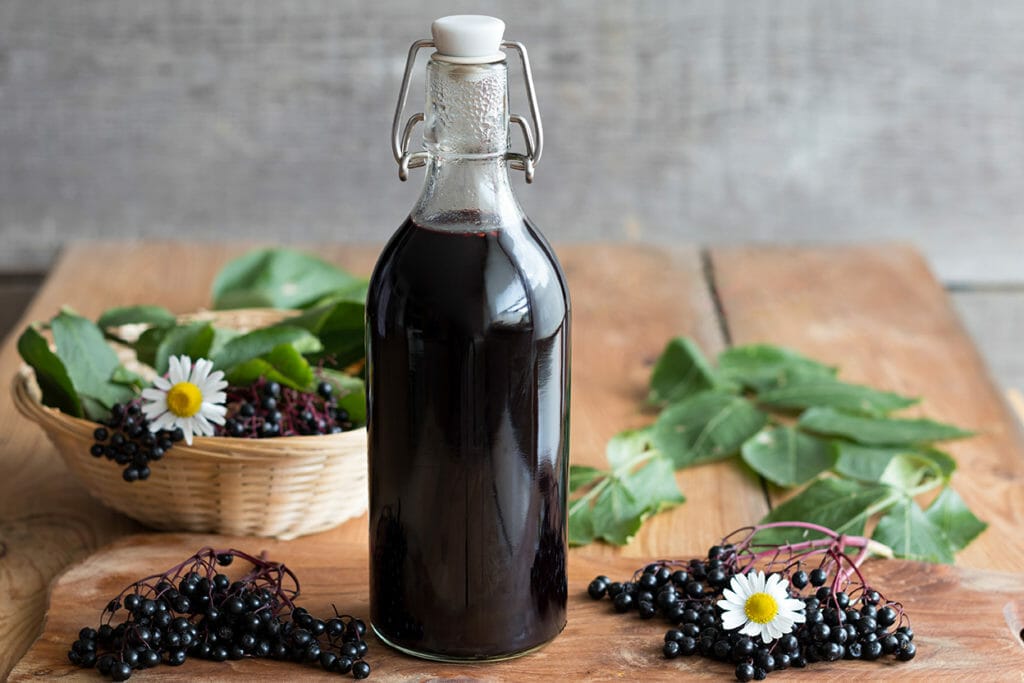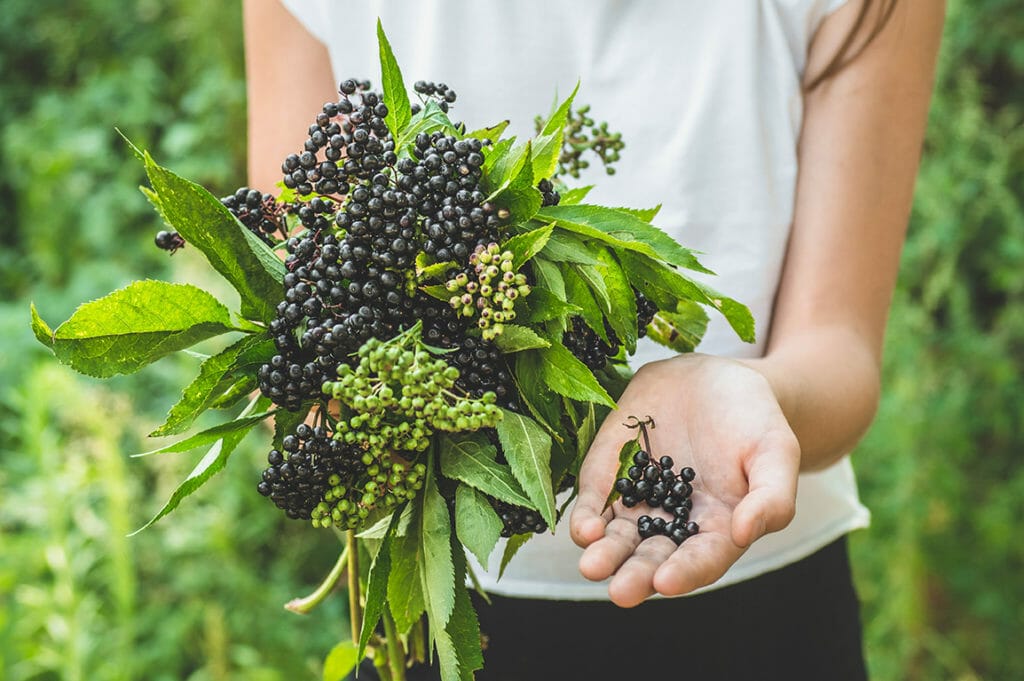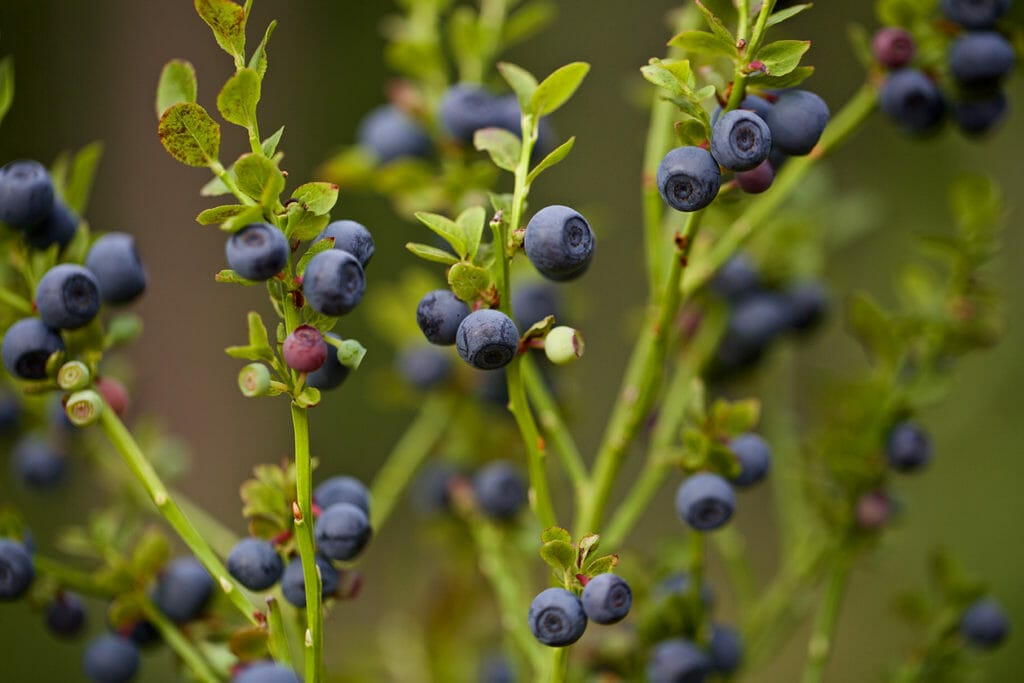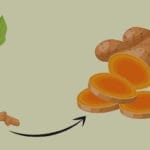Elderberry – Nature’s Super Immune Booster
Plants and herbs are known to contain hundreds of different natural nutrients so these supplements are popular as health supporting remedies. One way in which phytonutrients work is by supporting our immune systems in a number of different ways. But do plant-based antioxidant supplements really work?
Many foods and supplements are marketed based on their antioxidant potential; but cooking fruit and vegetables, as well as other types of processing can damage these delicate phytonutrients. But recent interest in a new form of concentrated natural super immune booster from flowering Elderberry (Sambucus nigra) known for its characteristic bluish-purple berries, which are packed full of powerful antioxidants, is taking the health market by storm.

What makes it special?
Elderberries are particularly special because this tiny fruit is packed with antioxidants, including anthocyanins, bioflavonoids, phenols, as well as vitamin C. These groups of antioxidants are important because they neutralise free radicals, which are waste products of cells that increase oxidative stress resulting in cell and DNA damage and even cell death. Free radicals can accumulate due to a wide range of stressors and insults from environmental causes like pollution and exposure to chemicals, as well as from viral infection and stress within the body.
When the body and cells own antioxidant defences are challenged, then too many free radicals build up; cells are damaged and in these challenging times of increased infection risk and stress the body’s own antioxidant defence mechanisms may be overwhelmed leading to inflammation contributing to heart disease, immune deficiencies, and many other acute and chronic illnesses. This makes our reliance on the best sources of dietary antioxidants, found mainly in fruits and vegetables, particularly important.
What is elderberry used for?
Elderberry is most famous for its use as an immune booster in the prevention and treatment of colds and flu. And it’s not simply an old wives tale – there are some (albeit small scale) studies:
- In vitro, elderberry was shown to be effective against 10 strains of influenza virus.[1]
- In a study of 60 people with influenza A and B (a virus that can cause the ‘flu), those who took 15ml of elderberry syrup (i.e. concentrated elderberry juice) four times per day showed symptom improvement in 2-4 days, while the control group took 7-8 days to improve.[2]
- A 2019 meta-analysis of randomised trials of 180 participants studying the effects of elderberry in cold and flu concluded that this extract is effective in substantially reducing upper respiratory symptoms.[3]
- A randomised, double-blind placebo-controlled study of 312 air travellers taking capsules containing 300 mg of elderberry extract three times per day found that those who got sick experienced a shorter duration of illness and less severe symptoms than those taking placebo.[4]

How does it work in supporting immune system function?
Elderberry’s antiviral activity on influenza is thought to be through a number of mechanisms of action, including suppressing the entry of the virus into the cell, modulating the post-infectious phase, and preventing viral transmission to other cells. Specifically:
- Phytonutrients in elderberry may prevent viruses from attaching by damaging the external virus envelope and rendering it non-infectious.[5]
- Polyphenols and flavonols can bind to viruses and prevent infection.
- Lectins found in plants, like elderberry, can also prevent binding of viral proteins to host receptors, preventing their interaction and inhibiting infection.
- Elderberry can increase the production of inflammatory cytokines in healthy individuals stimulating the body’s own immune system protection response reducing flu symptoms by 3-4 days.[6]
Elderberry supplements for immune support
The raw flowers, leaves and berries of the elderflower plant are poisonous and must be cooked before consumption. But in order to really concentrate the polyphenol antioxidants, traditional elderberry remedies turn the small fruits into syrup to drink.
However, as we’re all well aware, fruit syrups are full of sugar and also devoid of the natural plant fibres, which not only help to slow down absorption of sugars through the gut so stabilising blood sugar levels, but also support gut health. It’s for this reason that combining a clinically proven, solvent-free, low-temperature infra-red dried extracted elderberry concentrate (that naturally contains higher levels of important antioxidant phytonutrients including C3OG and gallic acid, which are lost in traditional fruit processing) with a gut-friendly prebiotic, soluble fibre (to replace the fibre lost through the juicing process) can provide an immune-supporting and healthy way to take elderberry.

Synergistic nutrients
Bilberry is also a fruit that is rich in antioxidants – in particular anthocyanins – and is often taken to support eye health, as well as immune system function and the cardiovascular system. Combined with the special patented concentrated elderberry extracts these antioxidant supplements pack a powerful health-supporting duo![7]

Dr Elisabeth Philipps PhD BSc (Hons) BSc Nutr Med AFMCP is a clinical neuroscientist and functional medicine practitioner and runs a health consultancy specialising in brain health, the endocannabinoid system and phytocannabinoids including C*B*D. She regularly presents at conferences and events and provides expert opinion for the national press, specialist healthcare publications and health companies. You can connect with Elisabeth via:
www.drelisabethphilipps.com | instagram – @drelisabethphilipps | Twitter – @drphilipps | Linked In – Dr Elisabeth Philipps
[1] https://agris.fao.org/agris-search/search.do?recordID=US201900100392
[2] https://pubmed.ncbi.nlm.nih.gov/15080016/
[3]https://www.sciencedirect.com/science/article/abs/pii/S0965229918310240?via%3Dihub
[4] https://www.ncbi.nlm.nih.gov/pmc/articles/PMC4848651/
[5] https://www.sciencedaily.com/releases/2019/04/190423133644.htm
[6] https://pubmed.ncbi.nlm.nih.gov/11399518/
[7] https://www.ncbi.nlm.nih.gov/books/NBK92770/







